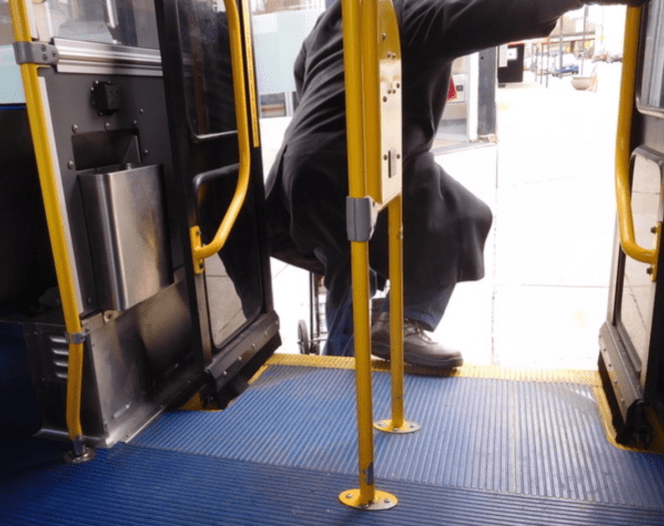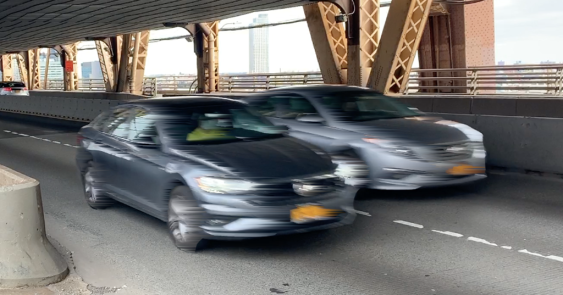This post originally appeared on Streetsblog Chicago and is republished here with permission.
CTA bus drivers have every right to be concerned about their health during COVID-19. Even with plummeting transit ridership, dozens of people are riding their vehicles every day, creating the potential for viral exposure. Several CTA employees have tested positive for the coronavirus, and tragically last weekend bus driver Kim Henderson passed away from the disease, just short of her 42nd birthday.
After Streetsblog Chicago advocated for steps to protect drivers and riders, last week the CTA finally implemented rear-door boarding to reduce bus operators’ exposure to the virus and prevent passenger queuing. Right now buses are free to ride, but the agency is in the process of installing Ventra fare card readers inside the read door, so in a few weeks you’ll have to pay again. The front of the bus is chained off to keep passengers away from the driver. To prevent dangerous crowding, bus operators are also allowed to run express once they have 15 passengers on a regular bus or 22 riders on an accordion bus.
Under the rear-door boarding policy, all passengers are required to head to the back unless you have mobility challenges that require a wheelchair ramp or for the bus to “kneel” for you to make it easier to board. But, sadly, I’ve heard a few stories of drivers failing to open the front door for people with disabilities when requested, but simply stared forward and ignoring the person. Fellow passengers urged the rider to head to the back door and helped haul them onboard. Here are a couple of stories posted by Streetsblog readers.
This one reportedly happened on the morning of Thursday, April 16, on the #52A Kedzie/California bus — I’ve lightly edited the text for clarity. “I’m a senior with bad knees. The CTA bus driver didn’t open the front door. Here I go trying to not slip or fall or loose my footing. It toook more than five minutes to board through the rear door PLEASE open the front doors… for everyone with a walking cane or grocery cart etc. I understand your health is important, but the driver is not going to help me if I get hurt on such a huge step.”
Here’s another story, also reportedly from Thursday morning on the #6 Jackson Park Express at the 67th Street and Oglesby Avenue stop, lightly edited. “I am not a spring chicken and it is hard to get in through the back door. The driver didn’t even want to kneel the bus, even though it is equipped to do so. It’s like they lost all humanity in this pandemic.”
Obviously, this is unacceptable. Letting a few passengers a day board through the front is not going expose drivers to undue risk, so it’s unethical to prioritize their own safety over that of CTA riders this way.
A CTA spokesperson said the agency has heard similar stories. “This is not our policy, and we apologize to any customer who has experienced this issue. As part of the temporary rear-door boarding procedure, operators were instructed that any customer needing or requesting to board through the front doors should be allowed to do so. Though the majority of operators have been doing this, we will provide reminders to all operators of the utmost importance of following this procedure.”
Any customer who is mistreated this way should report the date, time, location and bus number, if possible, to CTA customer service either by calling 1-888-YOUR-CTA (hearing Impaired/TTY, call 1-888-CTATTY1) or online at transitchicago.com.
“We expect all of our bus operators to follow proper procedure and will address this issue with specific bus operators when provided appropriate identifying information,” the spokesperson said.





